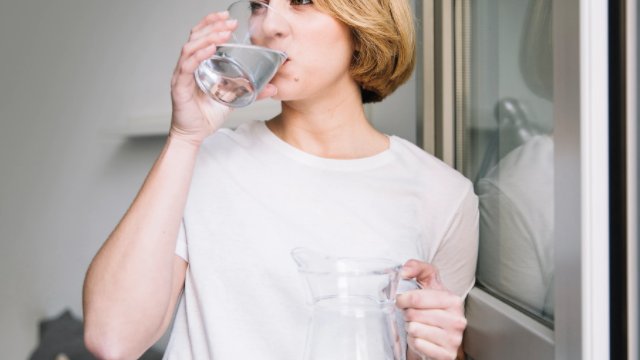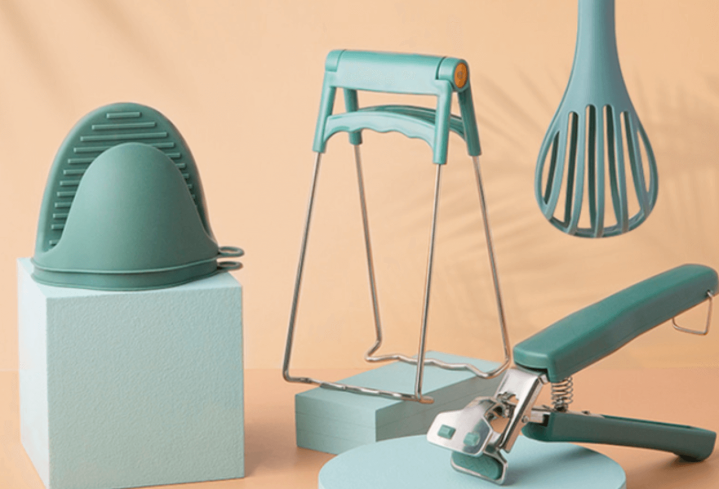Water is the source of life. Adequate water supply can ensure the normal operation of the body. But this phenomenon will be found in life. Some people seldom go to the toilet one day no matter how they drink water. Some people often go to the toilet even if they drink a little water. Their drinking water volume is not proportional to the frequency of going to the toilet.

How long is the best time to urinate after drinking water
Everyone's constitution is different, so the frequency and time of urination after drinking water are also different. The amount of urine stored in the bladder will affect the time of urination, and the body has been circulating metabolism. Under normal circumstances, drinking a glass of about 200 ml water will produce urine in about half an hour. Of course, if you drink a lot of water in a short time, which is not what your body needs, you will feel like going to the toilet in about 20 minutes. Drink water when you are obviously thirsty. The amount of water you drink is small. It may take more than an hour to urinate.

People who have been urinating after drinking water,
Who is healthier if you don't use the toilet for a long time
Whether you urinate frequently or rarely, you will first think that this may be caused by kidney damage. In fact, there are certain urination standards. The research shows that the 24-hour urine output of normal people is about 1000~2000, and we need to urinate about 4~7 times, including 4~6 times in the daytime and 0~1 times in the evening, to achieve the water balance of the human body. The urine is transparent, colorless, light yellow, and has no obvious odor. If the kidney is abnormal, urine will decrease. If you want to urinate immediately after drinking water, it is not caused by poor kidneys, because some diseases are prone to frequent urination. In any case, we should pay attention to the timely physical conditioning, which is more conducive to taking good care of the body!

If there is a disease in the urinary system
These characteristics are often accompanied by urination
1、 The smell of urine is pungent (peculiar smell of urine)
During urination, urine is concentrated and excreted less, and the smell is usually pungent, which is related to abnormal metabolism of the body. Water retention cannot be discharged smoothly. In addition, the accumulated harmful substances will produce a strong pungent smell.
2、 Hematuria
Pathological significance of gross hematuria: If hematuria occurs during urination, it is often a sign of disease danger, so don't take it lightly. However, the degree of hematuria is not proportional to the severity of the disease; Hematuria with or without pain is an important factor to distinguish between benign and malignant diseases of the urinary system: hematuria with pain in urination is mostly related to cystitis or urolithiasis, while painless hematuria is not other evidence, otherwise it indicates a tumor of the urinary system.
3、 Abnormal urine volume: oliguria or even anuria
Generally speaking, oliguria occurs when the urine volume in 24 hours is less than 400ml; If the urine volume in 24 hours is less than 100ml, there is no urine; At this time, anuria or oliguria caused by urinary obstruction should be considered first; The second consideration is anuria or oliguria (uremia) caused by kidney damage. During the onset of uremia, the physiological function of the kidney cannot play normally, the acid-base imbalance and water electrolyte balance cannot be maintained, and the body may also experience edema in the case of abnormal metabolism.
4、 Frequency of urination: the frequency of urination is significantly increased. In severe cases, the urine is discharged once every few minutes, and the urine volume is only a few milliliters each time; The causes of frequent urination are as follows:
Diabetes: diabetes patients will drink more, eat more, and urinate more. The so-called more urine means frequent urination, so we'd better go to the hospital for inspection when frequent urination occurs.
Urinary tract infection: Urinary tract infection mainly occurs in women, mainly because bacteria invade the urinary tract, causing urinary tract infection. In this case, frequent urination may occur. In addition, bladder tuberculosis can also lead to frequent urination;
Urinary tract obstruction: urolithiasis, urological tumor, prostate hyperplasia, etc;

People who urinate less frequently
Pay attention to the following issues
1、 Long term urine holding
Nowadays, in the fast-paced life, many people have developed the habit of holding urine for a long time, but it is easy to reduce the sensitivity of the bladder, leading to bladder relaxation. Even if the bladder stores a lot of urine, they still do not feel like urinating. For a long time, urine reflux is easy to induce nephritis.
2、 Dysuria
Common benign prostatic hyperplasia (BPH), also known as prostate hypertrophy. There are two main reasons. One is bladder outlet obstruction, and the other is bladder irritation. The elderly male prostate hyperplasia often shows progressive dysuria, accompanied by frequent urination, especially increased nocturnal urination. Prostate is very important for health. If urinary tract obstruction occurs, people usually have difficulty urinating and frequent urination. In severe cases, urinary retention will occur. As time goes by, it will damage renal function and need to go to the hospital.





